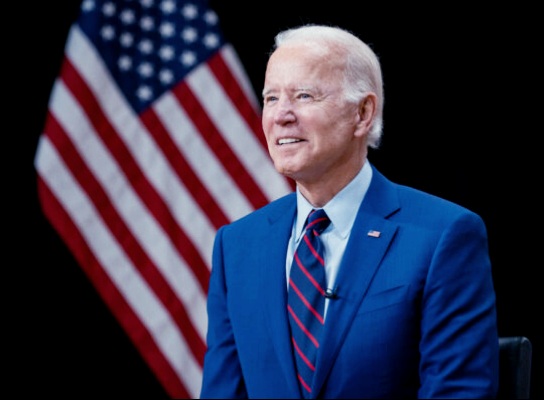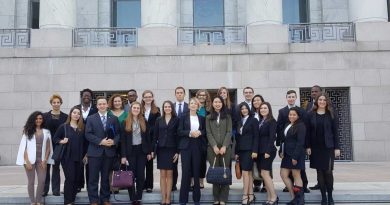“Modeling Public Discourse”: Diplomacy Faculty Discuss the Biden administration’s Foreign Policy
Jasmine DeLeon
Staff Writer
On January 21, one day after President Joe Biden’s inauguration, the Seton Hall School of Diplomacy and International Relations held its second Faculty Panel Discussion event to discuss the Biden administration’s foreign policy agenda and forecast possible challenges for the future.
Dr. Martin Edwards, the faculty chair of the School of Diplomacy, began the event by expressing the school’s goal of training future global scholars and by underscoring the importance of showing students how to have “reasonable and mature” public discourse. The first day included a conversation on regional challenges in China, Southeast Asia, Latin America, Eastern Europe, and North Africa. The second day focused on alliances, trade relations, and global challenges faced by the Biden administration.
Throughout both days, most panelists expressed concern over U.S. relations with China. Dr. Zheng Wang, an expert in the Asia-Pacific region, began his presentation on Sino-American relations by describing China as the largest foreign policy challenge to the Biden administration. He noted that during the Trump administration, “the space for open rational discussion became smaller and smaller.” Consequently, Dr. Wang recommended the use of professionalism, truce, and rationalism to improve U.S. foreign policy in the Pacific.
Dr. Sara Moller, who specializes in international security and alliances, echoed Dr. Wang’s remark that China will be a primary challenge for the Biden administration. “China will be at the center of the administration’s policy in the Pacific and in Europe,” Dr. Moller stated.
Similarly, Dr. Yanzhong Huang, a world expert in global health, noted that Sino-American relations have worsened by blaming China, as well as other countries, “for [the United States’ own] mishandling of the virus.” Dr. Huang, however, spoke with a sense of optimism that the Biden administration has team members who have expressed willingness to work with China.
China is also a significant consideration toward U.S. policy in Southeast Asia. According to Dr. Anne Marie Murphy, President Biden faces the challenge of building credibility as a strategic actor as there has been a “dramatic decline in Southeast Asian perceptions of U.S. power.” Furthermore, Dr. Murphy added, that it will be a challenge for Biden to establish new relationships with countries like Thailand, the Philippines, Vietnam, and Indonesia to “focus on competition with China.”
An important shift, Dr. Benjamin Goldfrank noted, is that for the first time, “Latin Americans trust China more than the United States.” On another note, Dr. Goldfrank, an expert in Latin American politics, criticized the Trump administration’s policies toward the region, but expressed optimism that Biden’s immigration policy “may be enough to improve U.S. standing in Latin American countries.”
Focusing on U.S. involvement in North Africa, Dr. Joseph Huddleston spoke about the need for the Biden administration to adopt a multilateral approach. Earlier this year, he published an article in Foreign Policy with two Diplomacy students, detailing the implications of President Trump’s move to recognize Moroccan sovereignty over Western Sahara.
Dr. Huddleston categorized Trump’s foreign policy as “unilateral transactional diplomacy” and he argued that this, ultimately, undercuts multilateralism and tolerates territorial aggression. During his presentation, he expressed concern over the U.S. setting a precedent of encouraging territorial expansion, which has implications in conflict zones all over the world. Ultimately, Huddleston argued that the Biden administration has an opportunity to embrace a UN leadership role by using more forceful diplomatic pressure.
This recommendation for a shift in current diplomatic norms should also be applied to Russia, Dr Margarita Balmaceda, an expert in Eastern European politics, argued. Dr. Balmaceda stated that the United States needs to re-establish a new type of working relationship with Russia. An important area of focus for the United States, she argued, is the Middle East, where there has been a “tremendous increase in Russian influence” due to a lack of U.S. counter-policy.
The more immediate challenge in the U.S.-Russia relations, Balmaceda underscored, is “the future of strategic arms and negotiation”, an area that she noted “has been in crisis for quite a while.”
In the same vein, Father Brian Muzas highlighted that “nuclear weapons will definitely be on Biden’s agenda,” and pointed to the New START treaty as an important concern for both parties. The treaty was recently extended for five years on January, reports Politico.
On the issue of trade relations, Dr. Nabeela Alam talked about the U.S.-China trade war, which she said must be handled carefully. Dr. Alam also predicted that Biden will likely work with allies to slowly undo tariffs. She also sees Biden’s move of appointing Catherine Thai as U.S. Trade Representative as a “signal that the administration intends to work multilaterally.”
Ending the two-day panel event, Dean Courtney Smith spoke on UN relations. He described Biden’s appointments as promising, and he sees “serious efforts for the United States to re-engage the UN.” The faculty welcomed questions and engaged in a thought-provoking manner with the audience on both days. Overall, there was a sense of optimism—but also concern—among the panelists over the Biden administration’s foreign policy agenda.


